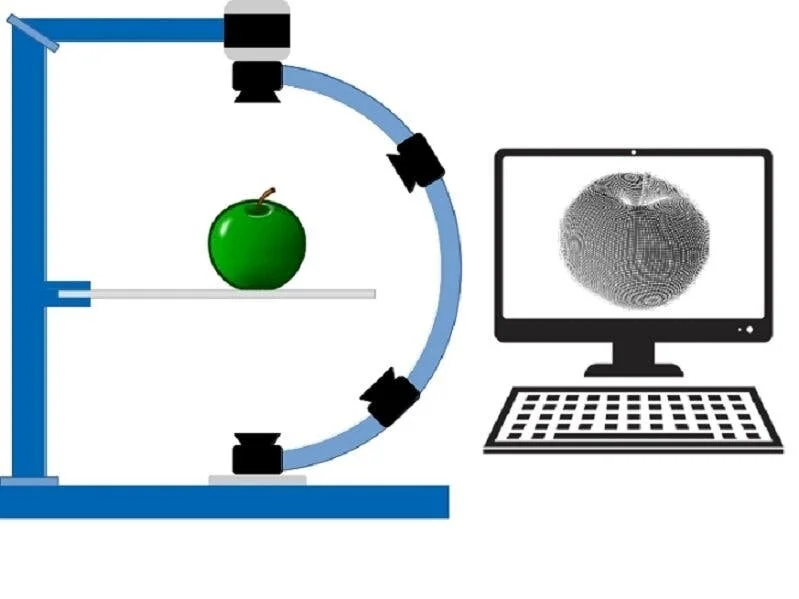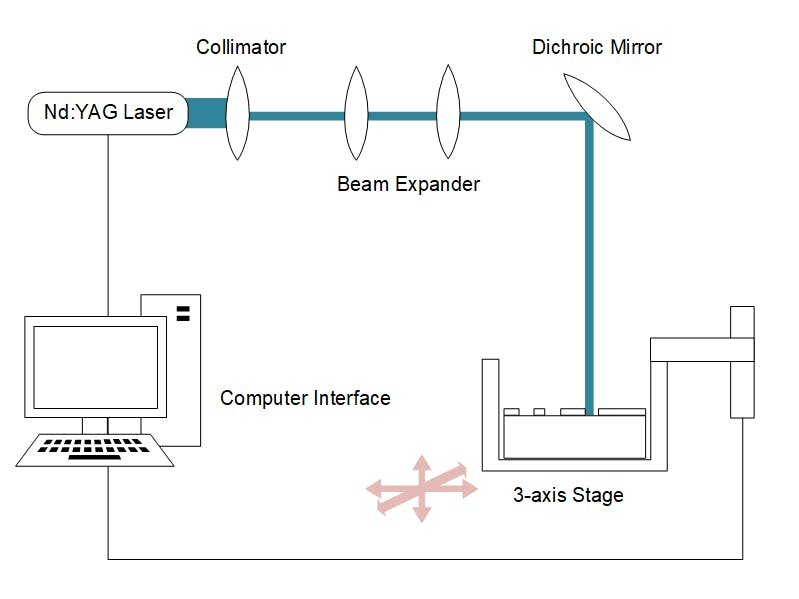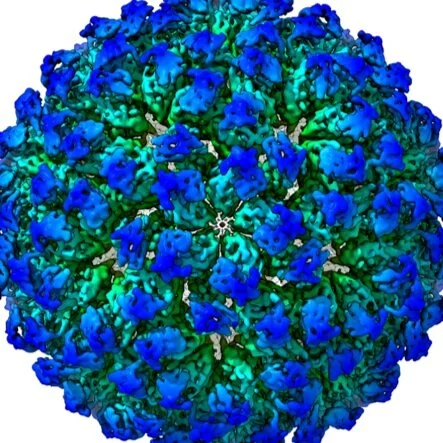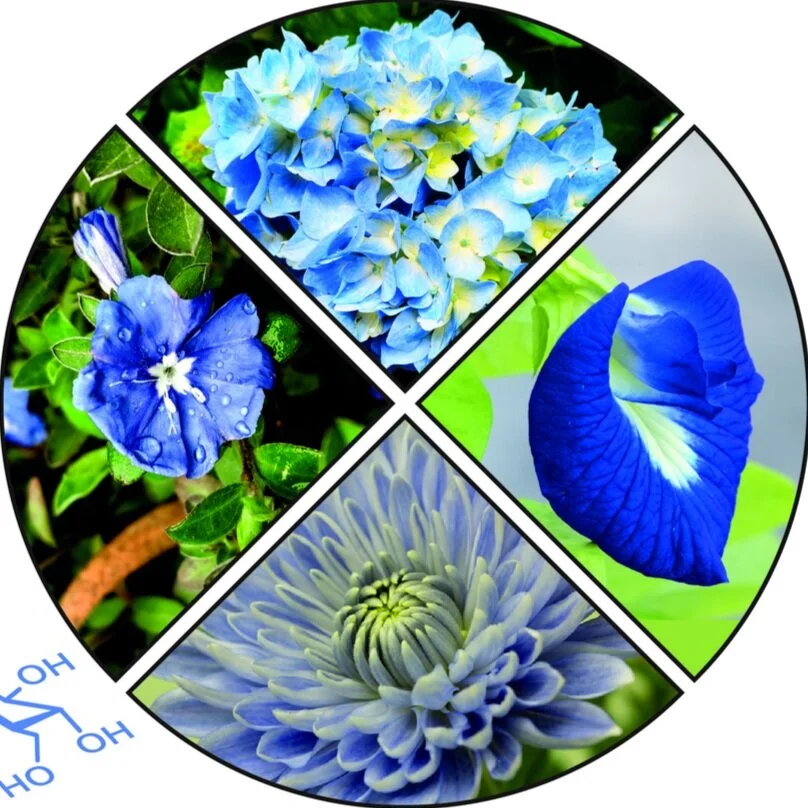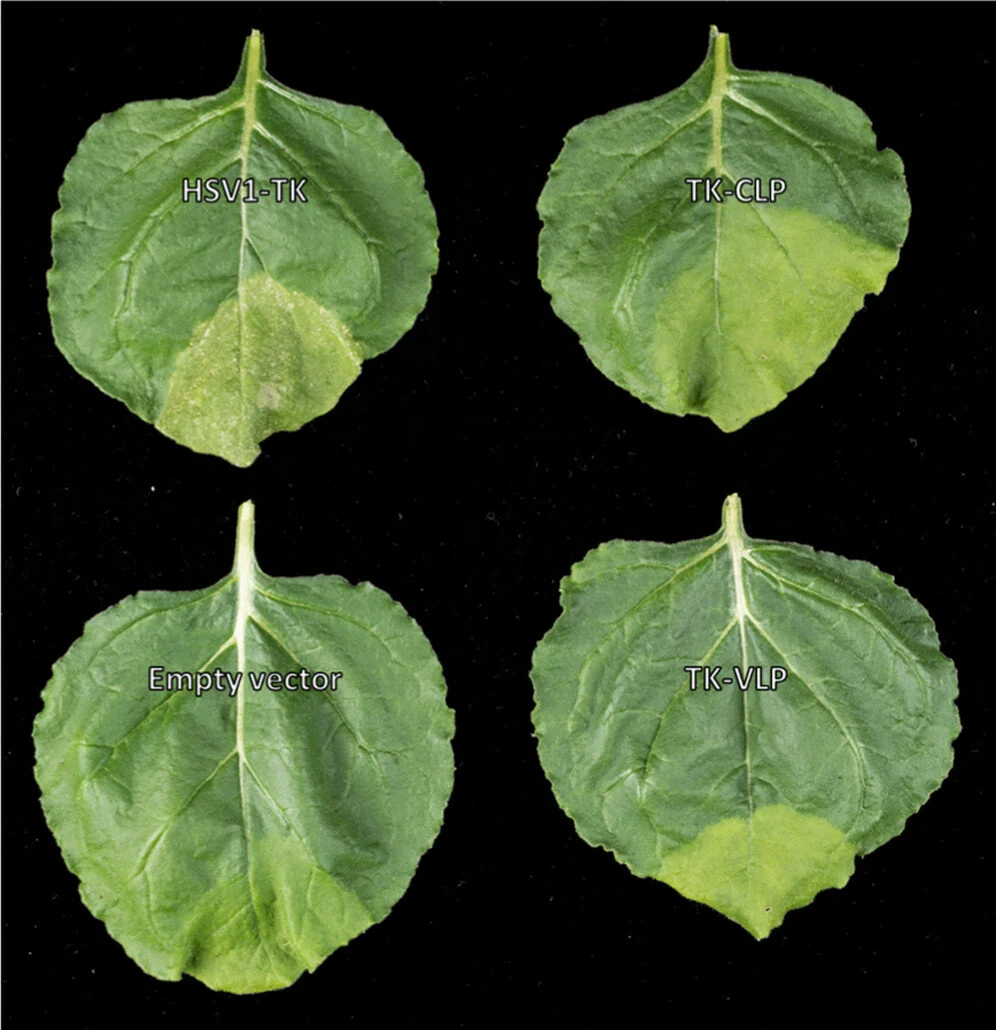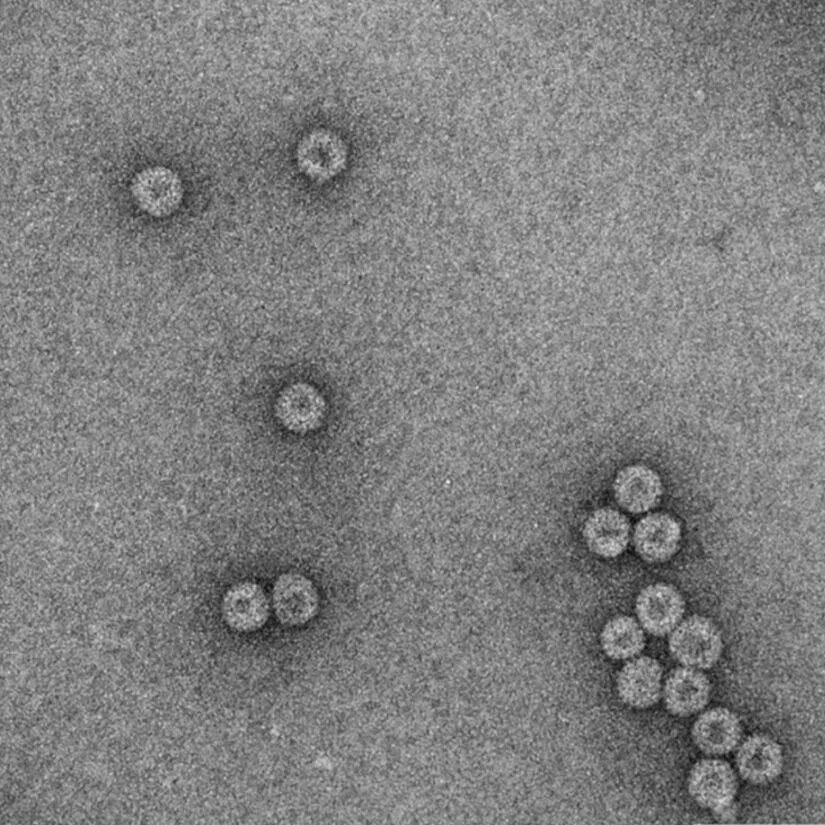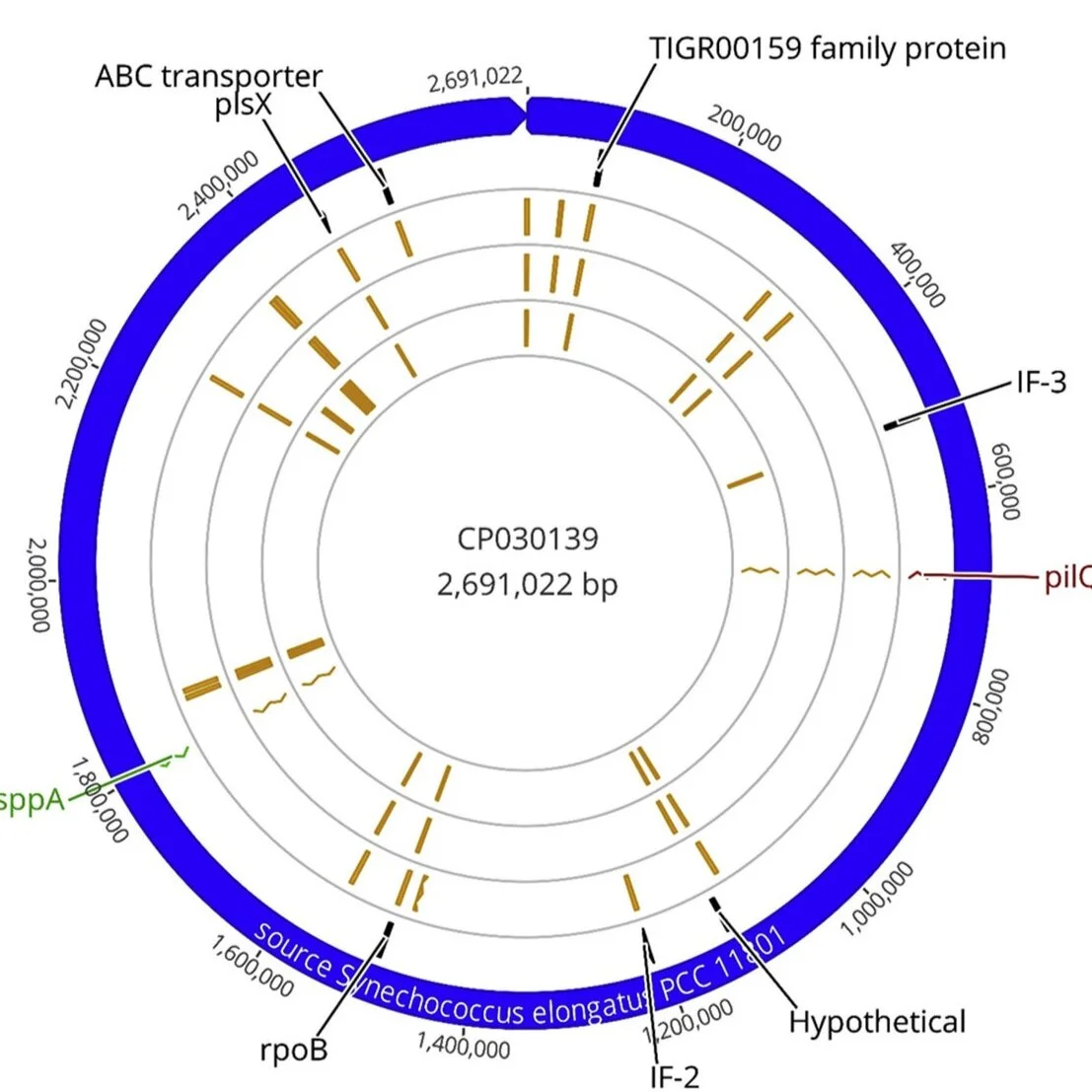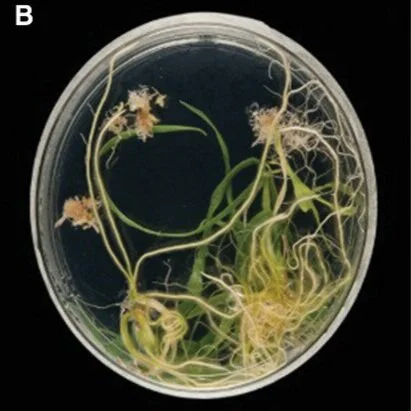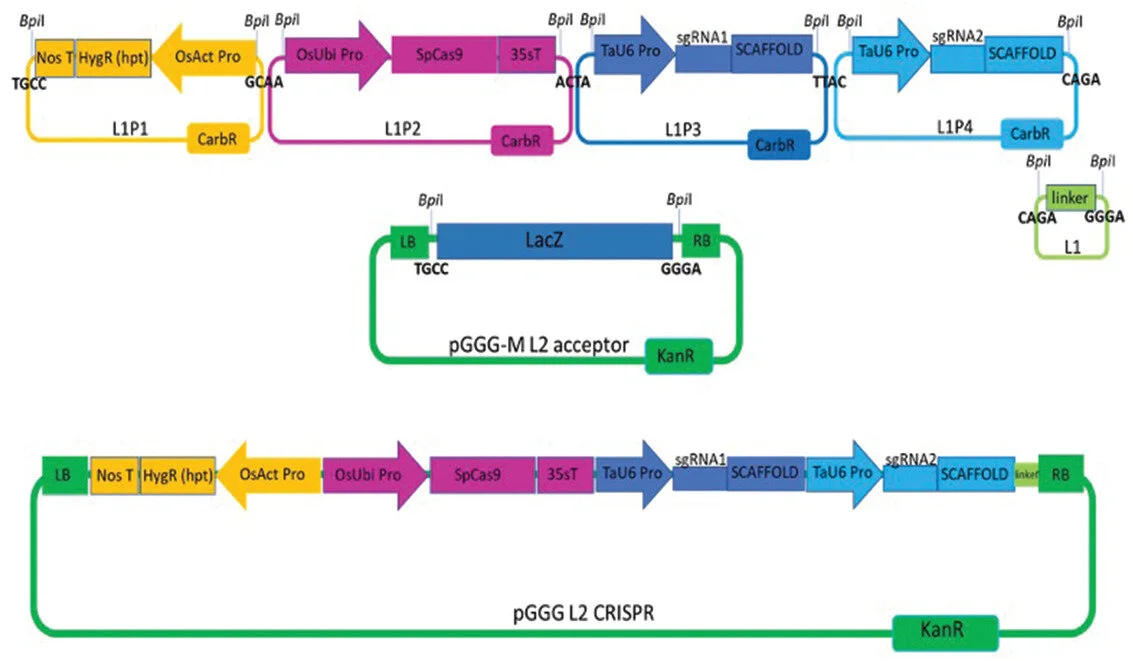Senior postdoc-level position available at Cambridge Science Park startup Nuclera. Working to develop enzymatic DNA synthesis technology for a desktop bioprinter.
Biomaker Challenge 2020/21 Final Showcase
You are invited to join Biomaker participants and finalists for a virtual showcase of this year's projects.
Hear from the Biomaker Challenge 2020 finalists and find out more about their low-cost, open-source biological hardware projects.
Schedule:
17:00 Welcome and Introduction
17:10 Overview of 2020 projects
17:30 Finalist Presentations and Demonstrations
18:10 Q&A
18:30 Finish
Finalists
For more information please contact coordinator@synbio.cam.ac.uk
Publication: Plant-expressed virus-like particles reveal the intricate maturation process of a eukaryotic virus
Plant-expressed virus-like particles reveal the intricate maturation process of a eukaryotic virus
Roger Castells-Graells, Jonas R. S. Ribeiro, Tatiana Domitrovic, Emma L. Hesketh, Charlotte A. Scarff, John E. Johnson, Neil A. Ranson, David M. Lawson & George P. Lomonossoff
Communications Biology volume 4, Article number: 619
Vacancy: Laboratory Manager at Leaf Expression Systems
The Company
Leaf Expression Systems is a contract development business based in Norwich, Norfolk which specialises in the plant-based expression and production of proteins, metabolites and complex natural products for research and biomedical applications using a proprietary, transient expression technology, Hypertrans®.
The role
Position type: permanent
Hours: Full time
The Laboratory Manager will oversee the efficient day-to-day running of Leaf Systems laboratories, growing areas and general facilities, providing a range of services in support of the company’s development and manufacturing activities. The hands-on role will ensure that the technician team are maintaining all general laboratory supplies, sufficient plants are available for production demand and perform waste management duties, which includes using autoclaves. The Laboratory Manager will also ensure that all environmental health and safety requirements are met by the team and quality management documentation is followed.
For more information go to www.leafexpressionsystems.com/careers/
All applicants must apply with a covering letter and CV to info@leafexpressionsystems.com
Publication: Plant-made dengue virus-like particles produced by co-expression of structural and non-structural proteins induce a humoral immune response in mice
Plant-made dengue virus-like particles produced by co-expression of structural and non-structural proteins induce a humoral immune response in mice.
Daniel Ponndorf, Yulia Meshcheriakova, Eva C. Thuenemann, Albor Dobon, Alonso Ross Overman, Nicholas Holton, Stuart Dowall, Emma Kennedy, Martin Stocks, George P. Lomonossoff, Hadrien Peyret
Plant Biotechnology Journal, Volume 19, Issue 4.
Publication: Natural Blues: Structure Meets Function in Anthocyanins
Natural Blues: Structure Meets Function in Anthocyanins.
Alan Houghton, Ingo Appelhagen and Cathie Martin
Plants (2021) 10(4), 726
Publication: Bluetongue Virus Particles as Nanoreactors for Enzyme Delivery and Cancer Therapy
Bluetongue Virus Particles as Nanoreactors for Enzyme Delivery and Cancer Therapy.
Eva C. Thuenemann, Duc H. T. Le, George P. Lomonossoff, and Nicole F. Steinmetz
Mol. Pharmaceutics (2021) 18, 3, 1150–1156
Publication: Efficient Production of Chimeric Hepatitis B Virus-Like Particles Bearing an Epitope of Hepatitis E Virus Capsid by Transient Expression in Nicotiana benthamiana
Efficient Production of Chimeric Hepatitis B Virus-Like Particles Bearing an Epitope of Hepatitis E Virus Capsid by Transient Expression in Nicotiana benthamiana.
Gergana Zahmanova, Milena Mazalovska, Katerina Takova,Valentina Toneva, Ivan Minkov, Hadrien Peyret, and George Lomonossoff.
Life (2021) 11(1), 64
Publication: Adaptive laboratory evolution of the fast-growing cyanobacterium Synechococcus elongatus PCC 11801 for improved solvent tolerance
Adaptive laboratory evolution of the fast-growing cyanobacterium Synechococcus elongatus PCC 11801 for improved solvent tolerance.
Vaibhav Srivastava, Ruth Amanna, Stephen J.L. Rowden, Shinjinee Sengupta, Swati Madhu, Christopher J.Howe, Pramod P. Wangikar
Journal of Bioscience and Bioengineering (2021) Volume 131, Issue 5, Pages 491-500.
Publication: An Efficient Agrobacterium‐Mediated Transformation Protocol for Hexaploid and Tetraploid Wheat
An Efficient Agrobacterium‐Mediated Transformation Protocol for Hexaploid and Tetraploid Wheat.
Sadiye Hayta, Mark A. Smedley, Martha Clarke, Macarena Forner and Wendy A. Harwood
Curr Protoc. 1(3):e58.
Publication: CRISPR-Cas9 Based Genome Editing in Wheat
CRISPR-Cas9 Based Genome Editing in Wheat.
Mark A Smedley, Sadiye Hayta, Martha Clarke, Wendy A Harwood
Curr Protoc (2021) Mar;1(3):e65.
Publication: A Mechanistic Model of the Regulation of Division Timing by the Circadian Clock in Cyanobacteria.
A Mechanistic Model of the Regulation of Division Timing by the Circadian Clock in Cyanobacteria
Paul K. Grant, Gregory Szep, Om Patange, Jacob Halatek, Valerie Coppard, Attila Csikász-Nagy, Jim Haseloff, James C. W. Locke, Neil Dalchau & Andrew Phillips
Biophysical Journal (2020) Volume 118, Issue 12, Pages 2905-2913
Vacancy: Research Technician at Phytoform Labs
The Company
At Phytoform Labs Ltd we believe in sustainable agriculture and nutrition for all. We see a lack of innovation in the agricultural space around the crops themselves, so we are building a multidisciplinary team to help rectify the situation. We have exciting growth plans over the next year and we are looking for a dedicated research technician to support our wet lab team. We are based at the world leading plant science institute Rothamsted Research just outside of London, United Kingdom.
The Role
If you are looking for a new challenge and like working with a multidisciplinary team then this job is for you. You will be responsible for maintenance of non-sterile and sterile plant material, DNA preparations (mini & midipreps) and media & consumable preparation for the wet lab. If you have previously been part of an academic or industry team, but now would like to work in a fast-paced start-up environment then you would be a great fit.
You will:
Track and maintain sterile growth and tissue culture of Arabidopsis, Potato & Tomato plants
Track and maintain soil grown plants (collaborating with Rothamsted Research Greenhouse team)
Prepare DNA for downstream applications (transformations, DNA minipreps & midipreps)
Prepare custom media for plant tissue culture and general molecular biology
Maintain wet lab consumable stocks
Requirements
BSc Biology or a related subject
Strong record of laboratory experience (3+ years)
Plant tissue culture skill set
More information
Vacancy: Plant Genome Engineer at Phytoform Labs
The Company
At Phytoform Labs Ltd we believe in sustainable agriculture and nutrition for all. We see a lack of innovation in the agricultural space around the crops themselves, so we are building a multidisciplinary team to help rectify the situation. We have exciting growth plans over the next year and we are looking for a talented plant scientist to support our R&D pipeline and genome engineering projects. We are based at the world leading plant science institute Rothamsted Research just outside of London, United Kingdom.
The Role
If you are looking for a new challenge and like working with a multidisciplinary team then this job is for you. We are looking for a motivated core team member to work on Phytoform Labs crop development pipeline. You will quantify and analyse multiple aspects of crop genetics as well as breed new crops with footprint-free genome editing. If you have previously been part of an academic or industry team, but now would like to work in a fast-paced start-up environment and develop a project from the ground up then you would be a great fit.
You will:
Design and validate in vitro and in vivo CRISPR-experiments
Develop new crop varieties with CRISPR based footprint-free genome editing
Work with plant tissue culture including protoplast regeneration
Validate new traits in crops
Requirements
PhD level plant molecular biology skills, with main focus on plant CRISPR-genome editing
Ability to develop new plant tissue culture protocols
Have worked with ‘non-model’ crop species
Able to work both independently and part of a team
Able to communicate ideas clearly to a multidisciplinary team
More information
Virtual Meetup: Join our Monthly Biomaker Catch-Ups
New monthly virtual meet up for anyone interested in the intersection of biology engineering and computer science.
The SynBio IRC, along with the OpenPlant Biomaker Challenge, are pleased to announce a new series of informal monthly catch-ups to promote discussion of synthetic biology and bioengineering.
The monthly sessions will be held on Zoom, and will be an opportunity for Biomaker teams (and others interested in the intersection of biology, engineering and computing) to drop-in, ‘show-and-tell’, share their progress on bioelectronics projects, discuss ideas and ask questions.
Anyone is welcome to to present their ideas and bio-electronics projects, or just to listen in an hear more about this year's Biomaker teams and their progress.
The meetings will be held at 15:00 (GMT) on the final Tuesday of each month:
For more information see the Cambridge Synthetic Biology Meetup Group, or contact the SynBio IRC coordinator Steph Norwood at coordinator@synbio.cam.ac.uk.
Job opportunity: Senior Fermentation Scientist at Colorifix
Senior Fermentation Scientist at Colorifix:
£41,000 - £45,000 a year - Full-time, Permanent
“As part of the Dye house production team, the Senior Fermentation Scientist will play an integral role in the day-to-day operations of Colorifix’s demonstration plant in Cambridge, UK. The demonstration plant seamlessly integrates Colorifix’s entire process from dye production via fermentation through to industrial dyeing and finally to fabric finishing. The Senior Fermentation Scientist will be responsible for the operation of pilot scale and demonstration fermentation systems whose products will be used by the dye team for small scale dyeing runs. The senior scientist will also be the dye house’s interface with the company’s R&D teams and be expected to lead and assist with the technology transfer of new strains and process improvements from the laboratory to pilot scale. Longer term the role may include having oversight of bench-scale fermentations systems for process development work at the Cambridge site. The role will also include the day-to-day management of junior fermentation scientists and/or technicians.”
Application deadline: 14/02/2021
For more information visit: https://uk.indeed.com/viewjob?cmp=Colorifix-Ltd&t=Senior+Fermentation+Scientist&jk=1f9b3fda711f8f36&q=fermentation&vjs=3
Job opportunity: Fermentation Specialist at Colorifix
Fermentation Specialist at Colorifix:
£42,000 - £50,000 a year - Full-time, Permanent
“We seek to hire a highly motivated and experienced Fermentation Specialist to be part of our Implementation Team, which will play a key role in client onboarding. Specifically, we are working with a number of mills and dye houses (the clients) across Europe that provide services to the international fashion and textile industries. In order to integrate our technology into their existing processes, they need to purchase and set up fermentation equipment at their facilities, or alternatively contract CMOs locally to provide an outsourced fermentation service to them. Given that this is a previously unused technology in this context, the Fermentation Specialist will take the lead in advising management teams of client dye houses and will work in tandem with other specialists from our Implementation Team, whose expertise will be in GM regulation and safety.”
Application deadline: 14/02/2021
For more more information visit: https://uk.indeed.com/viewjob?cmp=Colorifix-Ltd&t=Fermentation+Specialist&jk=0ea87314348f50ae&q=fermentation&vjs=3
Stress priming for production of biodiesel precursors
The aim & rationale
Unicellular algae form a powerful biotechnological warehouse for production of chemical compounds and a valuable platform for synthetic biology. However, algae commercial potential can be fully revealed only after deepening the understanding of their fundamental processes. Triacylglycerols (TAGs) are lipids that can be used as the precursors in biodiesel production. Model green alga, Chlamydomonas reinhardtii, accumulates TAGs in stress conditions, like nitrogen deprivation. TAGs accumulation is reversible and chromatin-based, features that make this process a potential subject for stress priming - a phenomenon where repeated stress exposure leads to amplification of the response comparing to the 1st/single stress exposure (conceptually similar to vaccination). Stress priming was not explored in algae, even though it offers a tool to manipulate algal biofuel production!
We proposed to establish and optimize protocols for algal growth and TAGs’ accumulation in stress priming setup using a histochemical, chromatographic and microscopic approach. The aim of the project was to decipher whether stress priming exists in simple eukaryotes and whether it can be used for biotechnological/synthetic biology purpose.
The project
We undertook the following steps: 1) Set up stress priming growth conditions, including the selection of proper harvesting timepoints and preservation of harvested material; 2) Implement and optimize simple TAGs staining protocol using Nile Red dye; 3) Acquire images using confocal microscope; 4) Quantify dye intensity, normalize to cell size and extrapolate to TAGs accumulation strength (Nile Red fluorescence is tightly correlated with TAGs content); 5) Obtain chromatographic profile of accumulated TAGs using GC-MS.
Figure 1: TAG-stained C. reinhardtii cells with Nile Red (green/yellow). Red corresponds to the autofluorescence.
After some optimization, we found out that some fiddling around with recovery time, staining protocol and extraction are needed (see the link to our Hackster page below), but overall, the plan worked. We obtained some beautifully stained TAGs in alga cells and sought to properly quantify fluorescence intensity with normalizations to account for the background noise and batch variation. Finally, we were able to properly compare stress-primed samples and single-stress controls. Long story short, we saw that… stress priming indeed occurred in the conditions used for TAGs’ accumulation in model green alga! However, to our surprise the dynamics were opposite to expected – stress priming caused TAGs’ downregulation, instead of upregulation!
We wanted to study the phenomenon further and understand lipid type composition in our samples. To this end, we employed gas chromatography. Despite quantitative difference in TAGs accumulation, stress-primed cells did not show qualitative difference in lipid type profile. However, we did observe that stress samples in general exhibited lower lipid complexity than non-stressed controls.
Future outlook
Our results show that stress priming exists in simple alga. Since stress treatment is frequently employed for biosynthesis of valuable bioproducts like biofuel, antioxidants or nutraceuticals, this phenomenon can be used for biotech & synthetic approaches.
As for direct outcomes, our Hackster page contains protocols and descriptions for procedure optimization, that can be used by DIY biotechnologists. We are also drafting a small paper for the broader community. Alga growth and staining procedures can be performed in a cost-effective manner and expensive equipment (we admit we used it) can be replaced by cheaper alternatives developed in other Biomaker projects (DIY microscopes and bioreactors). The Biomaker challenge opened us to new ideas and is worth a recommendation to all the curious people!
Acknowledgements
We would like to thank the organizers for making this experience happen and Andy Truman (John Innes Centre, Norwich) for being our kind host of the grant.
Please check out our hackster page to learn more about the project.
Pawel Mikulski and Javier Santos Aberturas, John Innes Centre.
Group Leader Vacancies at the John Innes Centre
Group leader positions currently available at the John Innes Centre:
John Innes Centre is looking for creative early-career or established researchers who wish to develop exciting long-term independent programs in plant and microbial science and be part of a highly collaborative culture.
Applications close Friday 22 January 2021.
For more more information visit: https://www.jic.ac.uk/vacancies/group-leaders-2/
Publication: Interpretation of morphogen gradients by a synthetic bistable circuit
Interpretation of morphogen gradients by a synthetic bistable circuit.
Paul K. Grant, Gregory Szep, Om Patange, Jacob Halatek, Valerie Coppard, Attila Csikász-Nagy, Jim Haseloff, James C. W. Locke, Neil Dalchau & Andrew Phillips
Nature Communications (2020) 11: 5545

![[Closes 24 Nov 2107] Apply now to the OpenPlant Fund!](https://images.squarespace-cdn.com/content/v1/54a6bdb7e4b08424e69c93a1/1509564315902-TUO4I6QRWI9TT8UGSIAJ/OpenPlantTwitter_400x400+%281%29.jpg)

![[Closes 7 Mar 2017] OpenPlant Research Associate (Haseloff Lab)](https://images.squarespace-cdn.com/content/v1/54a6bdb7e4b08424e69c93a1/1486552818859-FH76MCA8SMFU93WB85RX/OpenPlantTwitter_400x400.jpg)


